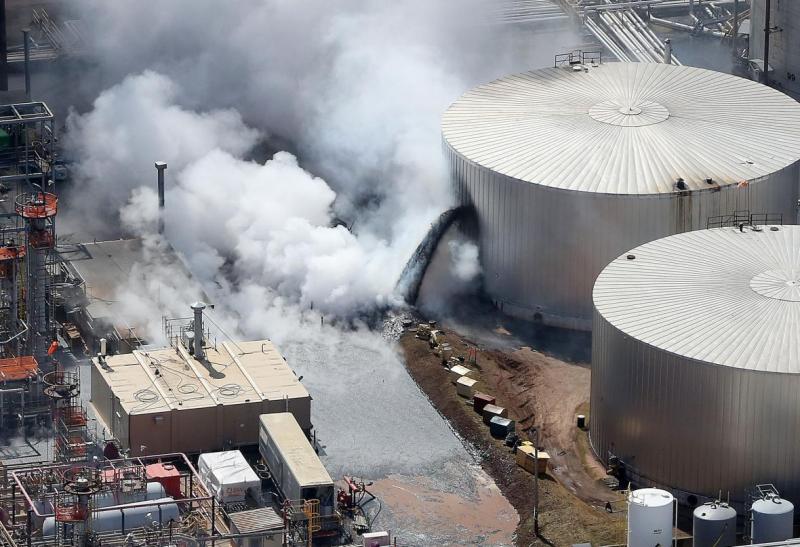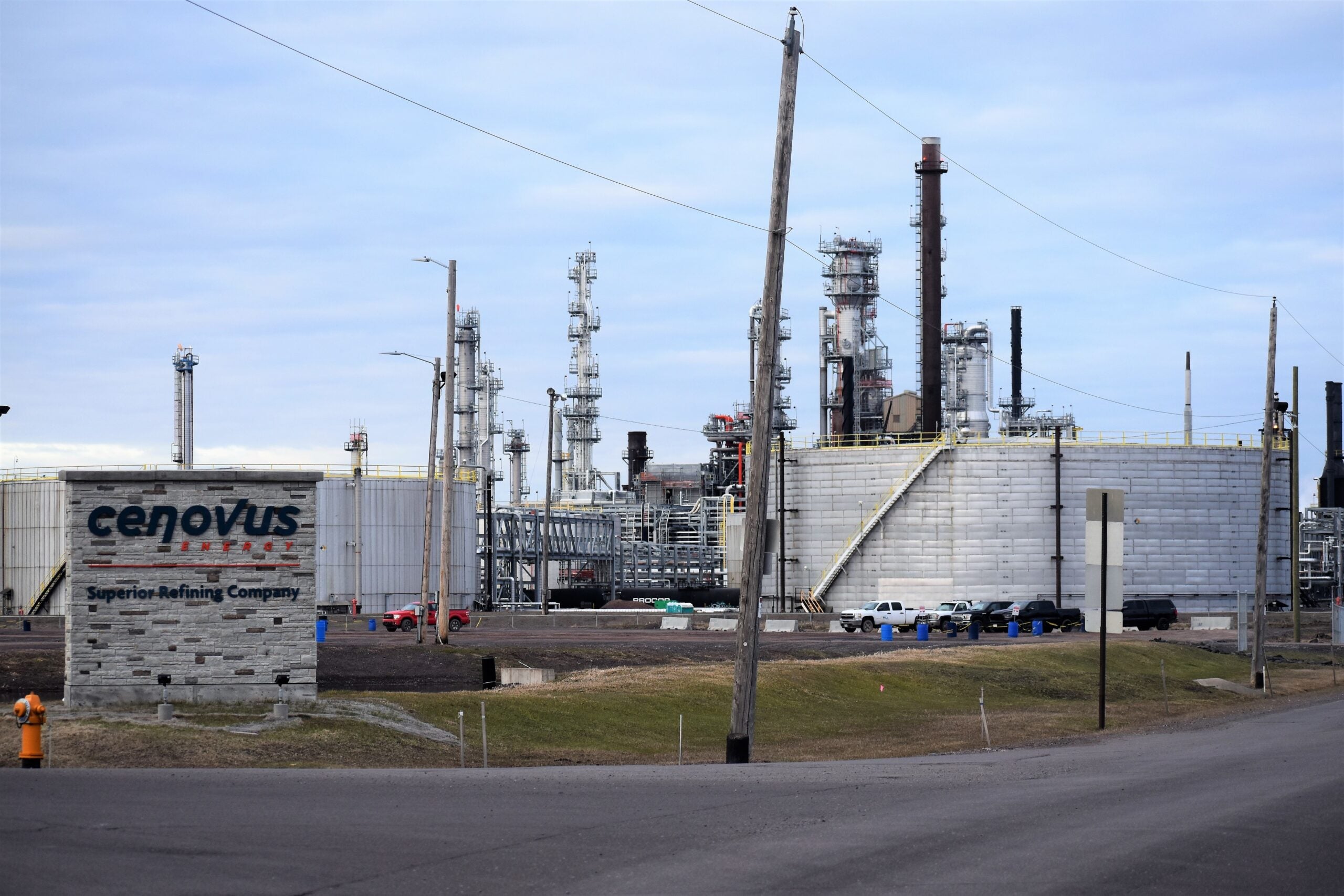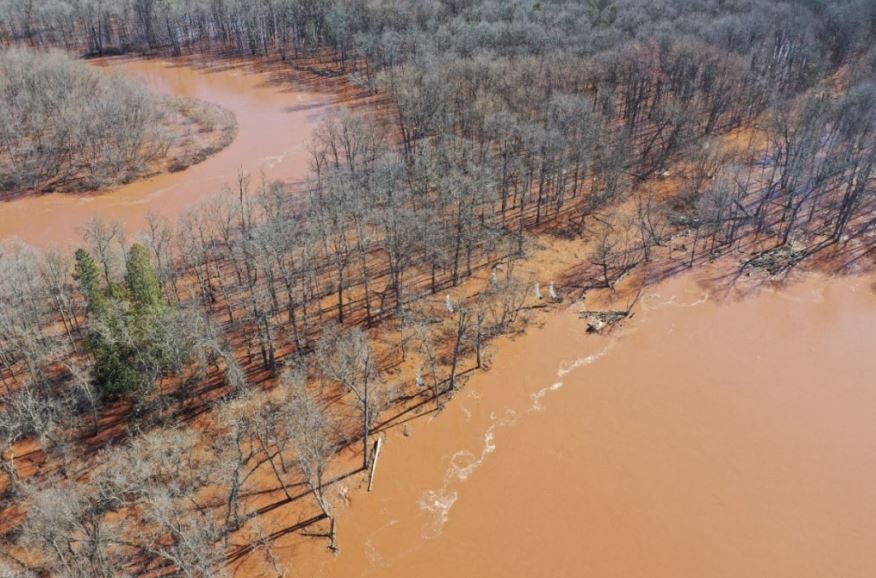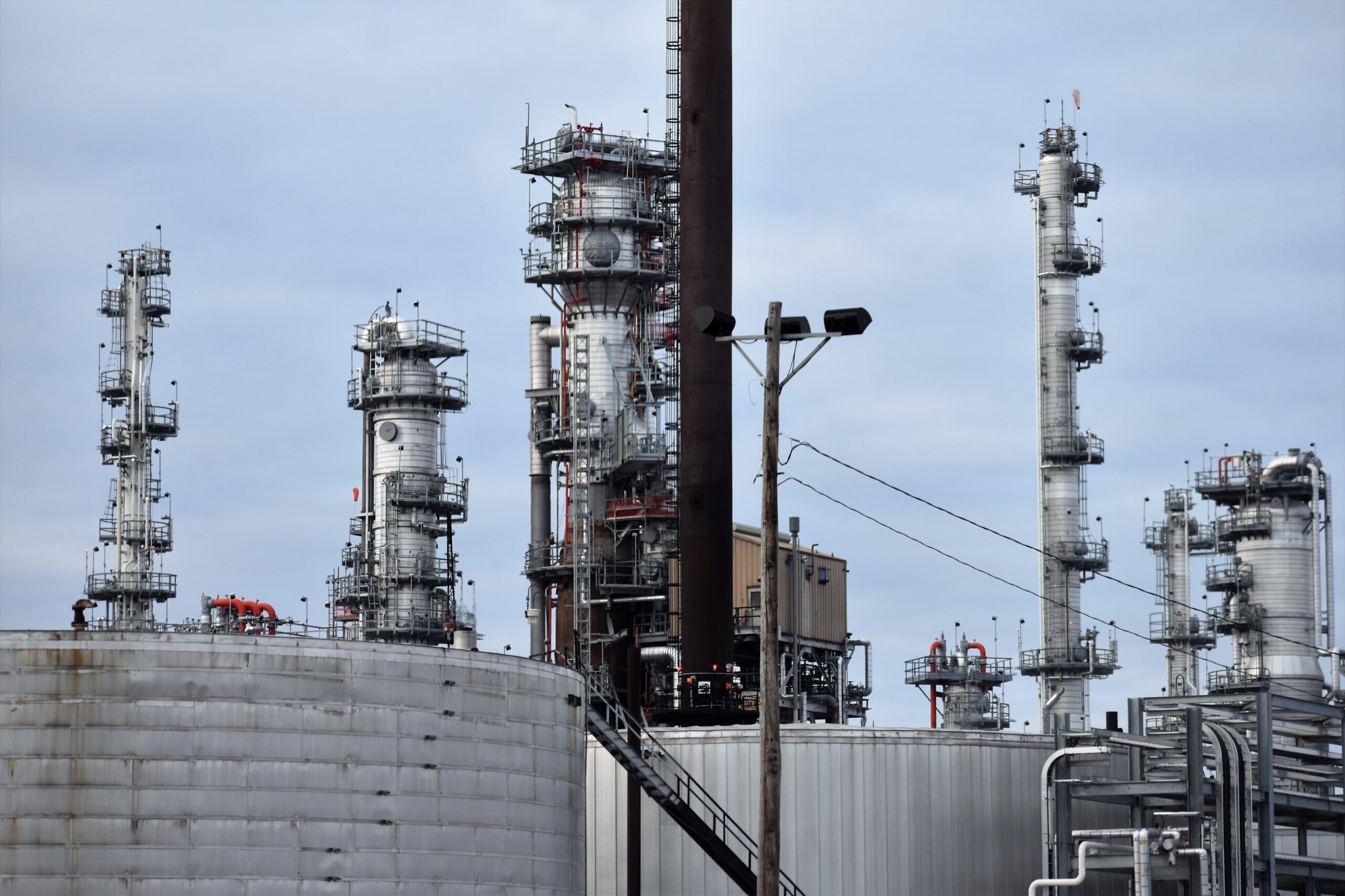Alberta-based Husky Energy said the company’s net earnings are up 300 percent from the same time last year. The company also received about $84 million (in U.S. dollars) in insurance money to pay for damage caused by an explosion and series of fires at its oil refinery in Superior this past April.
Husky reported the company’s net profits grew to around $415 million (in U.S. dollars) in its third quarter earnings report.
In the midst of this news, Ginger Juel, co-founder of Twin Ports Action Alliance, has been pushing Husky to end its use of the highly toxic chemical hydrogen fluoride. The chemical, which can pose serious health risks if released, caused the evacuation order for Superior residents on April 26.
News with a little more humanity
WPR’s “Wisconsin Today” newsletter keeps you connected to the state you love without feeling overwhelmed. No paywall. No agenda. No corporate filter.
“If they have the funding to run a very safe refinery, they should probably take the steps to create the safest refinery that they can,” said Juel.
Husky has said its safety systems for the hydrogen fluoride tank worked during the refinery incident, noting the tank wasn’t compromised in the fire.
But Juel said the company should be held accountable.
“This earnings report and insurance announcement would be all of the evidence Jim Paine, the mayor of Superior, would need to push Husky a little bit harder to get an answer on what the quote would be to use an alternative catalyst,” she added.
Superior Mayor Jim Paine said he has twice asked the company for an estimate of the cost to transition away from hydrogen fluoride, but he said he hasn’t really received an answer. He cautioned that Husky’s earnings report may not show the whole picture.
“But it certainly looks to me like they can afford it. This is a healthy company and oil is a healthy business. My position is the same that responsibility and safety are more important than profits,” he said. “In a time where profits are good, why not be responsible? Why not be safe?”
When asked whether the company could provide an estimate on transition costs or whether its made a decision, a Husky spokesman said the company hasn’t yet completed its evaluations of hydrogen fluoride. A 2011 report by the Center for Public Integrity puts the cost of converting to an alternative somewhere between $50 million and $150 million.
Husky Energy is currently in the process of trying to acquire Canadian oil sands company MEG Energy in a $5 billion deal.
As of the end of September, Husky has spent around $86 million on costs related to the Superior incident and written off around $43 million in assets. In a conference call on the 3Q earnings report, Jeff Hart, the company’s acting chief financial officer, said they expect to receive the insurance money next year.
“While we haven’t yet accrued proceeds for business interruption, these payments are also expected to begin in 2019,” said Hart.
A Husky spokesman said it doesn’t have an estimate of business expenses, but noted those would be reported with their financial results.
Superior’s mayor said the insurance money is important for the company to resume normal operations.
“It is important to the community that the refinery restore full operations as soon as possible. This is a major unexpected disruption that has multiple and rippling effects across our economy and day to day life,” said Paine. “This is a good thing that they’re going to be made whole.”
Husky doesn’t expect to resume normal operations until 2020. The company has hired a Houston-based engineering contractor to oversee design work for rebuilding the refinery. Around 600 workers and contractors have been working on cleanup and recovery at the site.
The company was recently fined about $83,000 by the federal Occupational Safety and Health Administration for worker safety violations in the April 26 incident. The Chemical Safety Board has released all but one unit involved in its investigation. It might be another year before the agency releases its findings. A faulty valve is suspected to have caused the explosion and fires that caused 36 people to seek medical care.
Wisconsin Public Radio, © Copyright 2026, Board of Regents of the University of Wisconsin System and Wisconsin Educational Communications Board.




